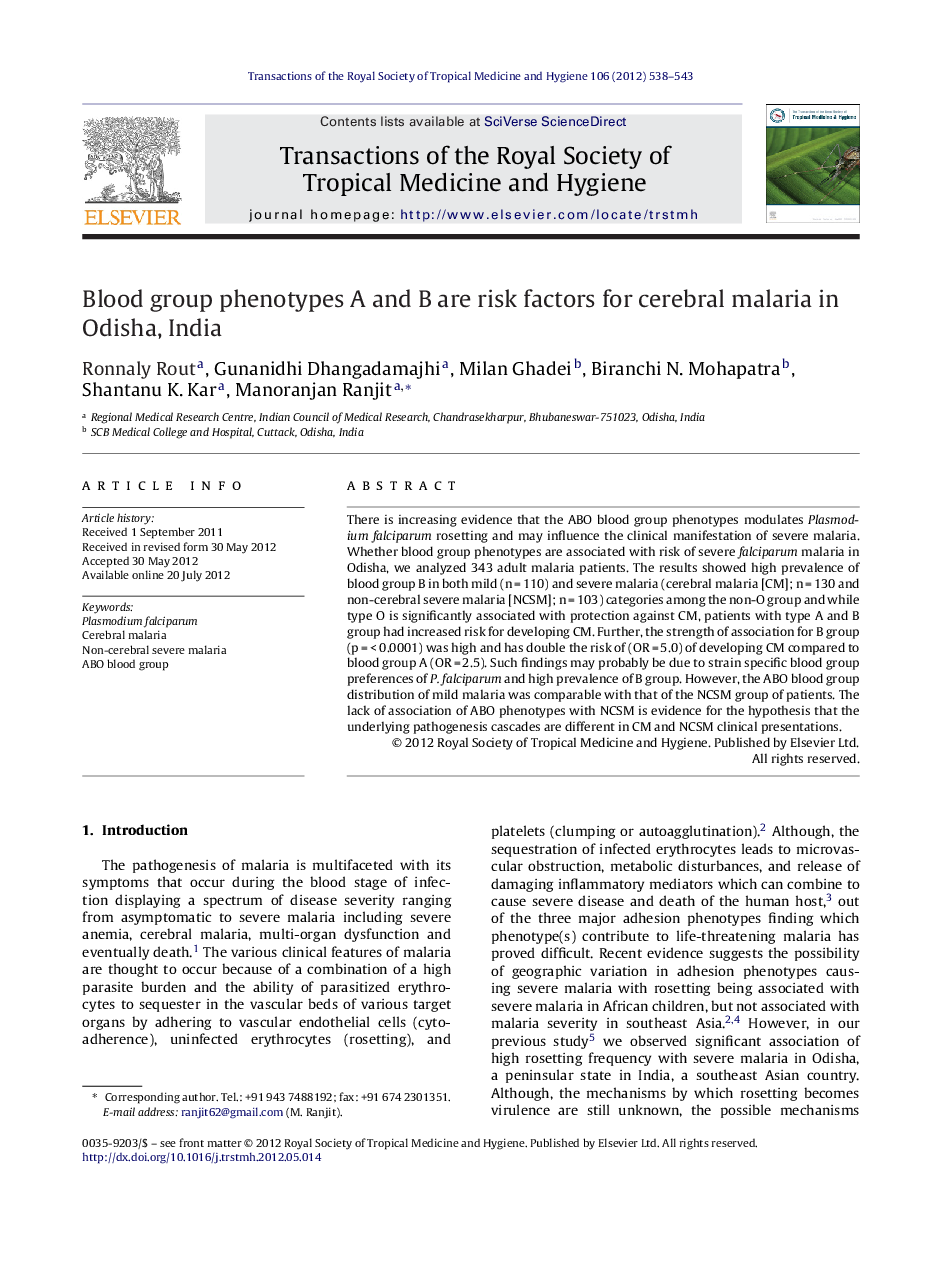| Article ID | Journal | Published Year | Pages | File Type |
|---|---|---|---|---|
| 6137241 | Transactions of the Royal Society of Tropical Medicine and Hygiene | 2012 | 6 Pages |
Abstract
There is increasing evidence that the ABO blood group phenotypes modulates Plasmodium falciparum rosetting and may influence the clinical manifestation of severe malaria. Whether blood group phenotypes are associated with risk of severe falciparum malaria in Odisha, we analyzed 343 adult malaria patients. The results showed high prevalence of blood group B in both mild (n = 110) and severe malaria (cerebral malaria [CM]; n = 130 and non-cerebral severe malaria [NCSM]; n = 103) categories among the non-O group and while type O is significantly associated with protection against CM, patients with type A and B group had increased risk for developing CM. Further, the strength of association for B group (p = < 0.0001) was high and has double the risk of (OR = 5.0) of developing CM compared to blood group A (OR = 2.5). Such findings may probably be due to strain specific blood group preferences of P. falciparum and high prevalence of B group. However, the ABO blood group distribution of mild malaria was comparable with that of the NCSM group of patients. The lack of association of ABO phenotypes with NCSM is evidence for the hypothesis that the underlying pathogenesis cascades are different in CM and NCSM clinical presentations.
Related Topics
Life Sciences
Immunology and Microbiology
Applied Microbiology and Biotechnology
Authors
Ronnaly Rout, Gunanidhi Dhangadamajhi, Milan Ghadei, Biranchi N. Mohapatra, Shantanu K. Kar, Manoranjan Ranjit,
